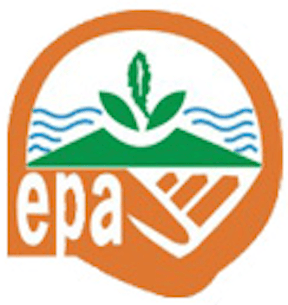EPA orders withdrawal of counterfeit agro-chemical products
 The Environmental Protection Agency (EPA) has asked persons trading in counterfeit adulterated agro chemical products to withdraw them within two weeks or face the full rigorous of the law.
The Environmental Protection Agency (EPA) has asked persons trading in counterfeit adulterated agro chemical products to withdraw them within two weeks or face the full rigorous of the law.
A swoop conducted by the EPA in collaboration with security agencies in some parts of the country has led to the confiscation of some adulterated products as well as closure of some retail outlets.
Dr Henry Kwaben Kokofu, the Executive Director of EPA, at a maiden media briefing on frequently reported environmental concerns, including noise pollution, waste water disposal, indiscriminate burning, fake agro-chemicals, and measures being taken to address them, said traders in conterfeit agro products would not be tolerated .
The prevalence of phony and illegal agrochemicals on the Ghanaian market is a source of worry to stakeholders in the agricultural sector, with CropLife Ghana warning that between 25 to 35 percent of imports into the country were fake or banned.
The Executive Director said the Agency in recent months had received many complaints on environmental issues, especially on noise and sub-standard agro-products, which a “careful” investigation had proven to be true.
“Indeed, there are substandard chemical products being sold on the market to unsuspected clients. We met with the leadership of dealers and importers of these products and we have agreed on specific activities to stop the canker,” he said.
Mr Kokofu advised farmers to be vigilant, avoid buying low priced products and sourced from only listed licensed dealers to protect the health of consumers.
Responding to a question on a testing laboratory, the Executive Director said the Agency had no laboratory at the ports to test agro-chemical products being imported into the country.
To check influx from inland borders, he said, a collaborative initiative had begun with security agencies to train them on how to stop people who would make the attempt to smuggle such products.
“It is wrong by law for agro-chemical products to come through any land borders into the country,” he said.
Dr Samira Amellal, the Director-General of CropLife Africa Middle East, recently at a media engagement said illicit agro products posed harm to farmers, crops, and the environment as their contents were “unknown, untested and unregulated.”
“The negative impacts of counterfeit pesticides are many. For farmers, counterfeits can lead to loss of revenues due to decreases in crop yields or severe damage to crops. In low-income countries, this can worsen poverty and threaten food security for already vulnerable communities,” she added.
Ms. Esi Nerquaye-Tetteh, the Chief Programme Officer, Pollution Control at EPA, said complaints of noise pollution increased from 244 in 2019 to 271 in 2021.
She said majority of the cases were recorded in the Greater Accra Region due to wrong siting of facilities, and high number of churches, mosques, restaurants, pub, and event centres.
Ms Nerquaye-Tetteh said the Agency would work with relevant stakeholders to ensure proper siting of noise generating facilities, enhance compliance, conduct training and capacity building for Assemblies.
She urged the Assemblies to procure decibel meter, an instrument to enable them assess noise or sound levels.
She said excessive noise beyond a certain level of intensity and duration could adversely affect human health, including hearing loss, irritation, headache, increase in heart rate and high blood pressure, annoyance, decrease in employee productivity, among others.
Source: GNA
